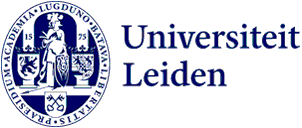
Leiden’s slavery past laid bare
The Mapping Slavery project will place markers that tell the story of Leiden’s slavery past. Why is this important and what does it mean for today’s society? Before the markers are placed, a panel came together on 24 March to discuss the slavery past of not only the city but the University too.
The markers will take the shape of a metal peg placed at locations that have something to do with the city’s slavery past. This could mean the houses of plantation owners, the houses of free black citizens or museums that were filled with colonial objects. ‘We want to show that slavery and colonialism were part of daily life in the city for centuries,’ said Max Urai from Mapping Slavery. ‘The people of Leiden participated in this, were victims of it, benefitted from it, thought about it, dreamed about it and resisted it. Only when we face up to this history can we start to understand who we really are.’

Knowledge production centre
The project in Leiden came about as a result of a Mapping Slavery, meeting that brought together initiators from different cities. It was also made possible with the publication of the book Sporen van de Slavernij in Leiden (Traces of Slavery in Leiden) by Gert Oostindie and Karwan Fatah-Black, both affiliated with Leiden University. ‘The book shows a different history of Leiden than the one we know,’ said Fatah-Black, who also participated in the panel discussion. ‘Besides being a city of the Golden Age and paupers, it is also a city with a colonial past. That knowledge will help us be that bit more thoughtful when it comes to nationalism, ethnocentrism and racism.’
Fatah-Black spoke about the city’s links with the Dutch West India Company. These were good for the cloth trade. The University meant that Leiden was a knowledge production centre, and the colonial administrators overseas had often studied law there.
More room
This led Annetje Ottow, President of the Executive Board, to discuss the University’s history at the meeting. She thinks it is time that more room should be given in the University’s history to slavery and the colonial past. ‘I expect that as a research and teaching institution we will be able to make an important contribution by offering critical, new insights and starting an open conversation within and outside the University.’

Change
Giving more room and attention to the University’s colonial past is an important step, according to the panellists. They believe that certain forms of supremacism in the past are still responsible for inequality in the present. Levi Ommen (policy officer for the Haagse Stadspartij party and press spokesperson and organiser of Black Lives Matter The Hague) tries to bring about change as a policy officer. ‘Then you can look at where things are going wrong, where the colonial past has a big influence on contemporary society and if this influence is negative, how we are going to change that. Hold your politicians accountable,’ she told the audience.
Miquella Neyda, who campaigns against discrimination, is hopeful that change will come. ‘When something is invisible, it’s hard to acknowledge. Today we have come to recognise the truth. Now we can join hands and take action to bring about change for people of colour.’
Text: Dagmar Aarts
Photos: Lina De Los Rios Torres
